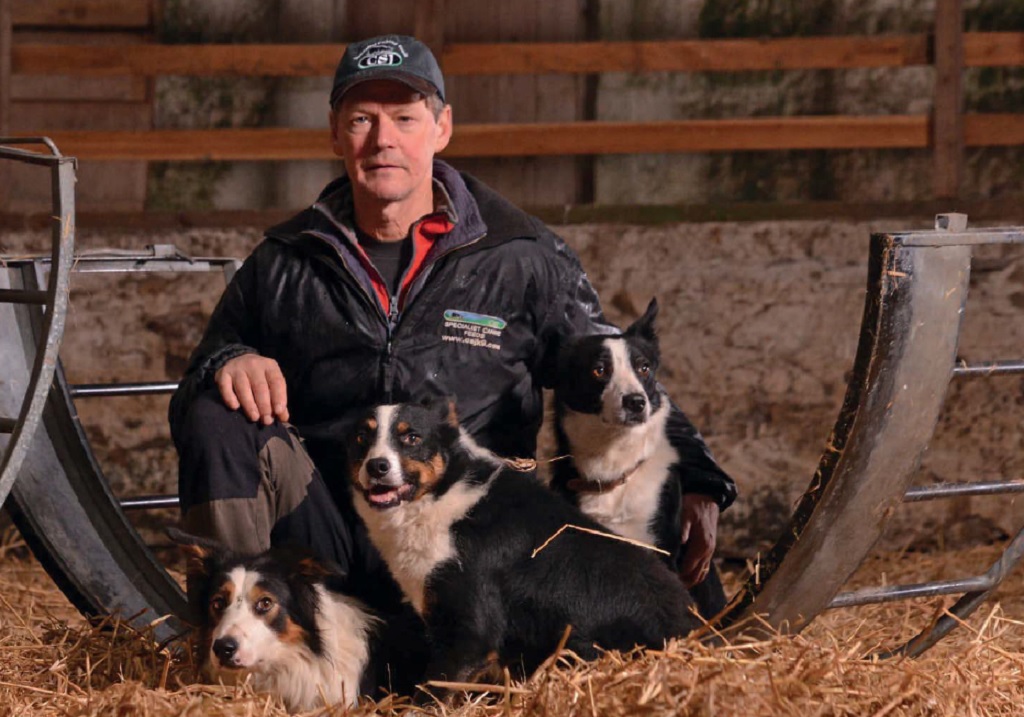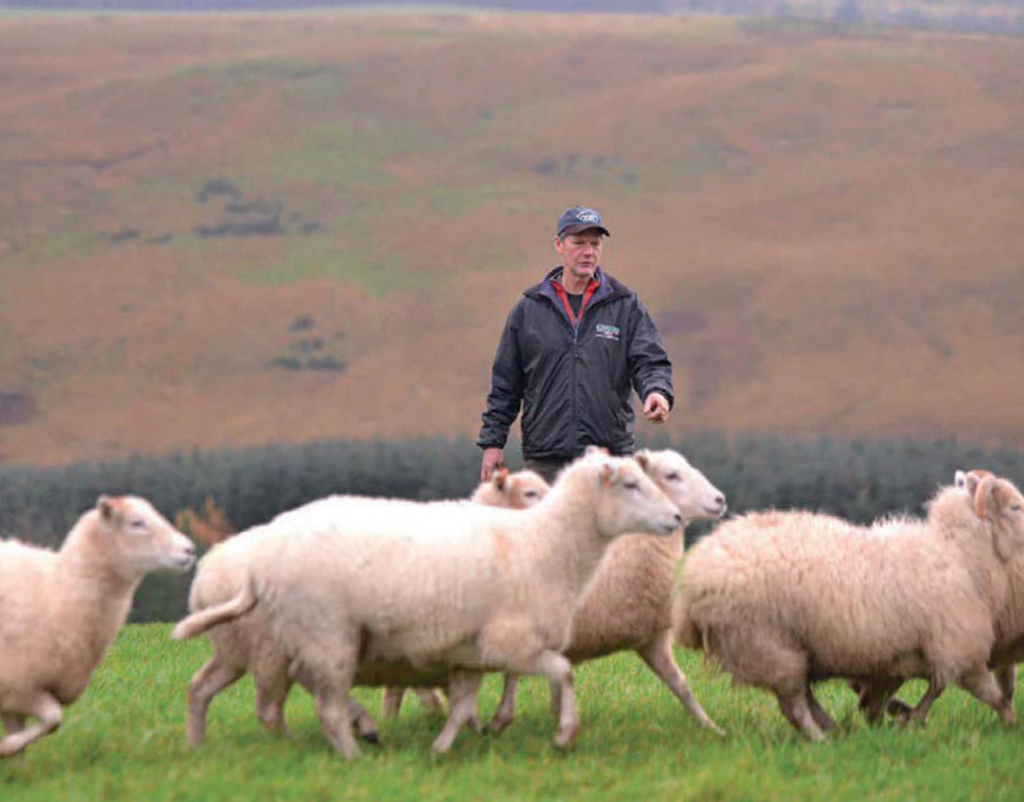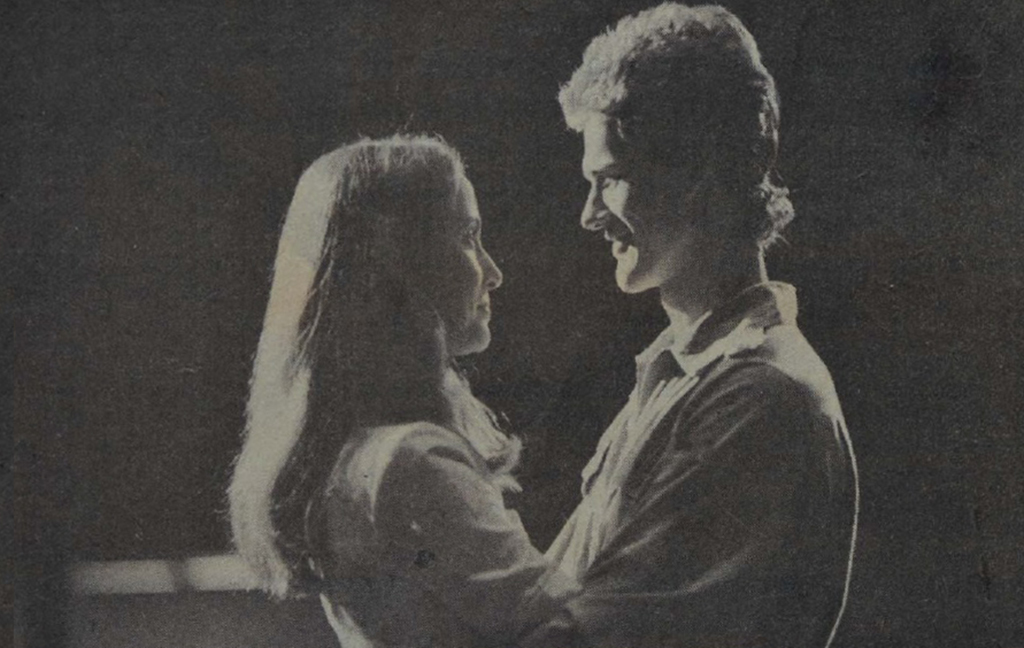
From ballet dancing to One Man and his Dog
From ballet dancing to being a rock star, champion sheepdog trialist Mosse Magnusson has had a dizzyingly eclectic career.
Not many shepherds can say they once sang in a 1970s pop musical or danced as the leading man in a ballet company. But then not many shepherds are like Carl-Magnus Magnusson.
Not only is Mosse (pronounced “Moss-Ah”), as he is universally known, good at cultural, urban pursuits, he has also been Continental and Scandinavian Sheepdog Trials Champion, won the Swedish trials seven times, come sixth in the World Trials and third in the International. He plays guitar like Jimi Hendrix, likes to chew on raw ginger and instead of the traditional tweed flat cap he sports a natty baseball cap.
The maverick Swede is, in short, something of an oddity in the world of competitive sheepdog trials.
When we arrive at Ardormie Farm in Perthshire, Mosse and his wife Lotta, herself one of Europe’s top sheepdog trials champions, are busy training dogs in-bye, disturbing the peace of a misty winter morning with the sharp whistle and ancient commands ‘come by’ and ‘away’ as the sheep gallop over the hard ground.
The farm is nestled in the foothills of the Angus Glens, almost exactly on the Highland Fault Boundary. To the south are soft green hills and the picturesque town of Alyth, while to the north is heathland and heather.

Mosse breeds and train Border Collies (Photo: Angus Blackburn)
Hundreds of years ago this was cattle thief country and walkers still like to follow the Cateran Trail that follows the old drovers’ roads and passes directly through the farm. Today it is more sheep country, with almost 450 ewes currently grazing the improved pasture and 100 hogs. A handful of tups are also doing their duty at this time of year.
As a rain crowd threatens, Mosse takes us into the large shed. In the heavy snow of last winter the roof collapsed. Thankfully, sheep are not as stupid as we think they are, and all managed to run to a safe corner just in time. Now there is a new roof and the rain drums merrily away as Mosse and Lotta call over a collection of handsome border collies to pose for pictures.
Some 20 dogs are kept in kennels on the farm for training and breeding. The best are sold for thousands of pounds around the world as top trial dogs. Although the commands are given in English, petting and the occasional reprimand – unless it is a very Anglo-Saxon expletive – seem to be in Swedish.
With their good looks and no-nonsense approach to life, Mosse and Lotta are everything we expect of Sweden. Yet they rejected their home country to come to Scotland four years ago to ‘live the dream’. While sheep farming is dying out in Sweden, Scotland still has professional farmers using dogs every day to manage sheep.

Mosse Magnusson counting sheep (Photo: Angus Blackburn)
This makes it the best place in the world for sheepdog trials. Frankly, having won the Swedish championship seven times in ten years, Mosse was ‘bored’ and eager to try a new challenge. He has been in the Scottish national team every year since 2010 and indeed this year had two dogs in the team that won Team Gold in the World Trial.
For Lotta, Scotland has been an opportunity to farm in a way that is dying out in Sweden. She says that a combination of low lamb prices, red tape and high costs has driven farmers out of business and young people are moving to the cities. ‘Everyone is moving to the cities. Everything is dying in Sweden.’
As well as training her own dogs, the pretty 49-year-old blonde manages to cure beautiful sheepskin rugs and bake delicious cakes to fuel the hard work of running a sheep farm – and any passing journalists. ‘Here the farmers are proud of their land and sheep. In Sweden people are a little bit ashamed,’ she says, sadly.
Mosse almost became one of the people who went to the city. In his twenties in the early 1970s he worked as music teacher and then joined the town theatre in Norrköping in eastern Sweden. He was trained in ballet and in 1976, when Abba were at the height of their fame, he starred in a popular musical that was shown on television. The theatre asked him to stay but his family farm was calling.
‘I was 25 and I felt like if you do theatre you have to dedicate your life completely. I felt I had to adapt and become a different person. They must like you and I was fed up of all that fakery. It was time to come home.’

In the 1970s, Mosse was the star of a popular musical show on Swedish television (Photo: Mosse Magnusson)
Mosse took over his father’s cattle farm and then, as his passion for sheepdog trials grew, he moved into sheep farming. By the late nineties he was the Swedish champion and taking clinics all over the world to teach others.
As the rain clears he works the dogs to show us how it is done. His ballet days may be far behind him but Mosse is spritely for a grandfather of two. The dog is alert to his every command, never getting too close to the sheep while keeping them in a tight group.
Mosse does not train his dogs through fear or even obedience through treats but by ‘applying and releasing pressure’. First the dog has to be taught to have the right attitude to the sheep and to follow instructions, and then it is just a case of controlling its natural instinct to herd other animals.
It is a difficult thing to explain, a little like music. Indeed Mosse says that a lot of top handlers have a good ear. Perhaps his ballet and musical training has come in useful after all. ‘When it is going as it should go,’ he says. ‘When it is in an art form, you are looking for harmony.’
(This feature was originally published in 2015)
TAGS

